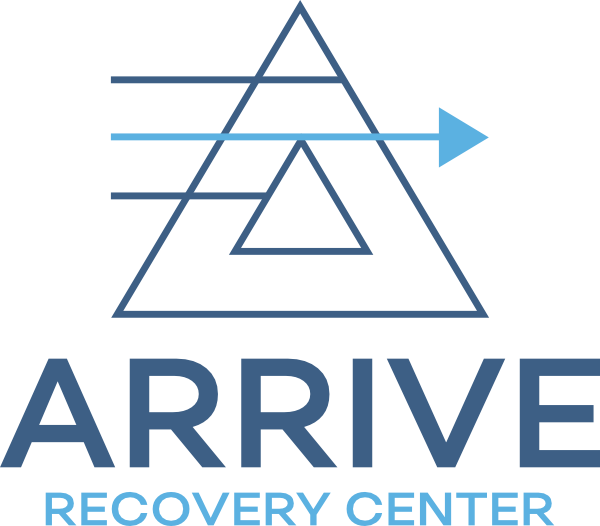Does Adderall Dehydrate You?
Adderall, a commonly prescribed medication for attention-deficit/hyperactivity disorder (ADHD) and narcolepsy, has been recognized as highly effective in improving focus and reducing impulsivity. However, like most medications, Adderall has pros and cons and many potential side effects. One frequently discussed concern among users and healthcare providers is whether Adderall causes dehydration. This article explores the relationship between stimulant prescriptions like Adderall and dehydration and other side effects, particularly those associated with addiction and long-term use.
Understanding Adderall
Adderall is a stimulant composed of amphetamine and dextroamphetamine. This drug works by increasing neurotransmitters such as dopamine and norepinephrine in the brain. These changes help improve attention, focus, and control impulses, making it an effective treatment for individuals struggling with ADHD. As a controlled substance, using Adderall strictly as prescribed is necessary to avoid misuse and potential addiction. That being said, whether taken recreationally or as prescribed, drugs that stimulate the central nervous system (CNS) can lead to several side effects, including dehydration.
Different Types of ADHD Medications:
While Adderall is a commonly prescribed medication for ADHD, there are other FDA-approved options available. Some of the most common ADHD medications include:
- Adderall (dextroamphetamine/amphetamine): Adderall is available in both instant-release (IR) and extended-release (XR) formulations.
- Ritalin (methylphenidate): Another stimulant that works similarly to Adderall.
- Concerta (extended-release methylphenidate): An extended-release form of Ritalin.
- Vyvanse (lisdexamfetamine): A prodrug converted into an active form in the body, providing a longer duration of effect.
- Strattera (atomoxetine): A non-stimulant medication that increases norepinephrine levels in the brain.
Each of these medications offers different benefits and side effects, and a healthcare provider can help determine which medication is best suited for an individual’s unique circumstances.

How Adderall And Other Stimulants Cause Dehydration
Several factors contribute to the dehydration effects of Adderall and similarly classified stimulant drugs. Some of these include:
1. Increased Urination
Adderall can act as a diuretic, increasing the frequency of urination. This happens because stimulants like Adderall can increase the kidneys’ production of urine, leading to a greater loss of fluids. When the body expels more water than usual, it can result in dehydration if the lost fluids are not adequately replaced.
2. Reduced Thirst Sensation
Stimulants can suppress appetite and thirst, an appealing side effect for some. However, users may not feel as thirsty as they should because of this, leading to less water or fluid intake. This reduction in fluid consumption, combined with increased urination, can quickly lead to dehydration.
3. Stimulant-Induced Activity and Hydration
Adderall and other stimulant drugs can boost energy levels, leading users to be more physically active. Increased physical activity, especially without sufficient hydration, can contribute to fluid loss through sweating and respiration, further exacerbating dehydration. This stimulant-induced activity makes it even more crucial to monitor hydration levels.
4. Dry Mouth
One common side effect of Adderall is dry mouth (xerostomia), often called “Adderall tongue.” While not directly causing dehydration, dry mouth can be uncomfortable and may signal that the body is not retaining enough moisture. This condition can also make drinking water less appealing, indirectly contributing to dehydration.
Symptoms of Dehydration
Recognizing the symptoms of dehydration is crucial for anyone taking Adderall. Dehydration can range from mild to severe, and its symptoms can include:
- Increased thirst
- Dry mouth and throat
- Dark yellow urine
- Feeling unusually tired or lethargic
- Dizziness or lightheadedness
- Confusion or difficulty concentrating
- Dry skin
- Headaches

How to Manage Adderall-Related Dehydration
To mitigate the risk of dehydration while taking Adderall, individuals can consider the following strategies:
1. Stay Hydrated
The most effective way to prevent dehydration is to maintain adequate hydration levels. Aim to drink at least eight 8-ounce glasses of water daily, and increase this if you are physically active or live in a hot climate.
2. Monitor Fluid Intake
Keep track of your fluid intake throughout the day. Using a water bottle with measurement markings can help you monitor how much you are drinking.
3. Limit or Balance Caffeine and Alcohol Intake
Both caffeine and alcohol can contribute to and worsen dehydration. If you must consume these beverages, balance them with an increased water intake.
4. Eat Water-Rich Foods
Incorporate foods with high water content, such as fruits and vegetables, into your diet. Cucumbers, watermelons, oranges, and strawberries are excellent choices.
5. Avoid Overexertion
While Adderall may increase your energy levels, be mindful of not overexerting yourself, especially in hot weather. Take breaks, rest when needed, and ensure you are hydrated before, during, and after physical activity.
6. Listen to Your Body
Pay attention to your body’s signals. If you feel thirsty, drink water. If you notice symptoms of dehydration, take action promptly to rehydrate.
7. Use Oral Rehydration Solutions
Oral rehydration solutions (ORS) like Pedialyte can be beneficial in cases of significant dehydration. These solutions contain a balanced mix of electrolytes and sugars to help the body absorb fluids more effectively.
Signs and Symptoms of Adderall Addiction
Adderall addiction can manifest through a variety of physical, behavioral, and psychological signs and symptoms. Understanding these indicators can help identify when professional intervention is needed.
Physical Symptoms
- Increased tolerance or requiring higher doses to achieve the same effect.
- Experiencing withdrawal symptoms like fatigue, depression, and irritability when the drug’s effects wear off.
- Significant and rapid weight loss.
- Insomnia and difficulty falling or staying asleep.
- Stimulants like Adderall can cause blood vessels to constrict, resulting in elevated heart rate and blood pressure, which can be dangerous over time.
- Constipation and other gastrointestinal issues.
Behavioral Symptoms
- Compulsively taking Adderall or other stimulants in larger quantities or more than prescribed.
- Doctor shopping or visiting multiple providers to obtain prescriptions to controlled substances
- Neglecting responsibilities like work, school, or family obligations in favor of using Adderall.
- Hiding pills, lying about use, or being evasive about activities.
- Social withdrawal from family and friends to spend more time using or obtaining Adderall.
Psychological Symptoms
- Cravings or intense urges to take Adderall.
- Excessive anxiety and paranoia, especially when unable to take the drug.
- Experiencing extreme mood swings.
- Feeling depressed, unusually sad, or hopeless, mainly when not using the drug.
- Cognitive impairments like issues with memory, concentration, and decision-making.
Recognizing these signs and symptoms early can help seek timely intervention and support. If you or a loved one exhibits these symptoms, it may be time to seek professional help.
Contact the team at Arrive Recovery Center today to learn more about how to get treatment for prescription drug addiction without stepping away from your daily life. Your path to recovery starts at Arrive.

Effects of Adderall Misuse
Abusing stimulants can have serious consequences, both in the short-term and long-term.
Short-Term Effects of Adderall Abuse:
- Increased heart rate, leading to heart problems
- Insomnia or difficulty sleeping due to the stimulant effects.
- Intense anxiety and paranoia
- Decreased appetite leads to weight loss and nutritional deficiencies.
- Mood swings and irritability
Long-Term Effects of Adderall Abuse:
- Cardiovascular issues such as increased risk of heart attack, arrhythmias, stroke, and hypertension.
- Drug-induced mental health issues like anxiety, depression, and psychosis.
- Cognitive impairments and difficulty concentrating
- Addiction and dependency
- Weight loss, malnutrition, and dental problems.
Helping a Loved One Struggling with Adderall Addiction
If you suspect a loved one is struggling with Adderall addiction, approach the situation with empathy and understanding. Here are some steps to help:
- Educate Yourself: Understand the signs and symptoms of Adderall addiction. The individual may be unaware of their problematic use or in denial. Recognizing what to look for can help you get a clearer picture of their struggles.
- Communicate Openly: Have an honest and non-judgmental conversation about your concerns. Avoid accusatory statements or blaming, and let them know you care about them and want the best for them. Use “I” statements to express your feelings without making them feel attacked.
- Encourage Professional Help: Suggest seeking professional treatment from a drug and alcohol treatment center. If your loved one is concerned about missing school, work, or other critical responsibilities, provide them with outpatient treatment options like Arrive Recovery Center in Thousand Oaks. Emphasize that help is available in various forms that fit into their lives.
- Support Their Journey: Offer emotional support and encourage their efforts to seek help. Admitting an inability to control drug or alcohol use is not easy. Ensure your loved one knows you will support them through this journey and that they are not alone. Be patient and understanding, as recovery is a gradual process that requires time and commitment.
By taking these steps, you can play a crucial role in helping your loved one overcome Adderall addiction and achieve lasting recovery.

Seeking Treatment at Arrive Recovery Center
If you or a loved one is struggling with Adderall addiction, it’s crucial to seek professional help. At Arrive Recovery Center in Thousand Oaks, California, we specialize in treating dual diagnosis and trauma, offering comprehensive outpatient programs designed to address both addiction and underlying mental health issues. Our compassionate team of experts is here to provide the support and care you need to achieve lasting recovery.
Begin Adderall Addiction Treatment in Thousand Oaks
If you suspect that Adderall use is impacting your life negatively, don’t wait to seek help. Contact Arrive Recovery Center in Thousand Oaks, California, to learn more about our specialized treatment programs.
Our dedicated team is here to guide you on your journey to recovery. Remember, you don’t have to face this alone. Contact Arrive Recovery Center and take the first step towards a brighter future.
Frequently Asked Questions
1. Does Adderall cause severe dehydration?
While Adderall can contribute to dehydration due to increased urination and reduced thirst sensation, severe dehydration is uncommon if proper hydration practices are followed. It’s vital to stay aware of your fluid intake and symptoms of dehydration to manage this side effect effectively.
2. What are the worst side effects of Adderall?
The most severe side effects of Adderall can include cardiovascular issues (such as high blood pressure and heart attack), mental health problems (like anxiety, paranoia, and psychosis), and the potential for addiction. It’s crucial to use Adderall under the guidance of a healthcare provider and report any concerning symptoms promptly.
3. Does Adderall dehydrate your skin?
Adderall can cause dry mouth and potentially dry skin due to dehydration. Staying hydrated by drinking plenty of water and using moisturizers can help mitigate these effects.
4. What nutrients does Adderall deplete?
Due to its diuretic effects, Adderall can deplete certain nutrients, such as potassium, magnesium, and calcium. Ensuring a balanced diet rich in these nutrients and considering supplements if needed can help maintain overall health while using Adderall.
5. Can Adderall cause constipation?
Yes, Adderall use can sometimes lead to gastrointestinal issues, including constipation. Maintaining a fiber-rich diet, staying hydrated, and regular exercise can help manage this side effect.
References
- Heal, D. J., Smith, S. L., Gosden, J., & Nutt, D. J. (2013). Amphetamine, past and present–a pharmacological and clinical perspective. Journal of psychopharmacology (Oxford, England), 27(6), 479–496. Accessed from: https://doi.org/10.1177/0269881113482532
- Sharbaf Shoar N, Marwaha R, Molla M. Dextroamphetamine-Amphetamine. [Updated 2023 May 23]. In: StatPearls [Internet]. Treasure Island (FL): StatPearls Publishing; 2024 Jan-. Accessed from: https://www.ncbi.nlm.nih.gov/books/NBK507808/
- Sichilima, T., & Rieder, M. J. (2009). Adderall and cardiovascular risk: A therapeutic dilemma. Paediatrics & child health, 14(3), 193–195. Accessed from: https://doi.org/10.1093/pch/14.3.193
- Farzam K, Faizy RM, Saadabadi A. Stimulants. [Updated 2023 Jul 2]. In: StatPearls [Internet]. Treasure Island (FL): StatPearls Publishing; 2024 Jan-. Accessed from: https://www.ncbi.nlm.nih.gov/books/NBK539896/


